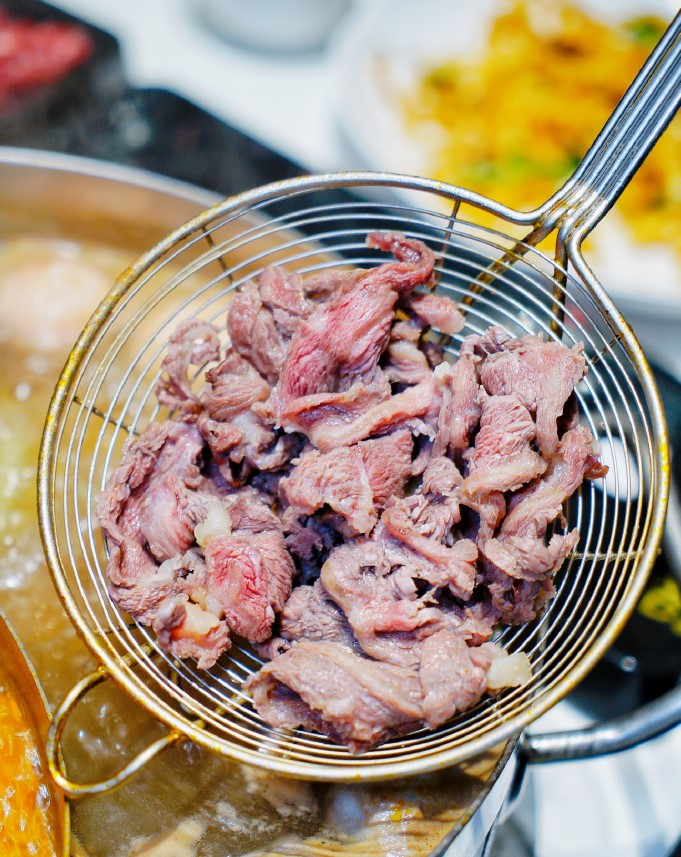
With the rapid development of online celebrity economy, a large number of we media bloggers have poured into the store exploration industry in the past two years, and recently there have been frequent store exploration bloggers "overturning". How to divide the responsibilities of the relevant subjects in the new way of publicity; How should consumers look at probe marketing? Recently, lawyer Deng Xu of Jiawei law firm was interviewed by Beijing Radio and television station 1039 News Morning Post, and gave a detailed interpretation of this event.
In May this year, Ms. Tao, the owner of the search shop, agreed with the merchant that the search shop would enjoy a "meal for three" for free, but she brought 8 relatives and friends to the shop for consumption. The merchant asked Ms. Tao to pay for meals for other than three people. Ms. Tao refused to pay for meals for nine people because she had three "search bloggers" accounts. Subsequently, the two sides argued endlessly on the Internet. Similar disputes are not individual cases. Due to the lack of standardization in the store exploration industry, the quality of personnel is mixed. Driven by the flow and profit, the industry has been in chaos such as false publicity and data fraud.

(picture from the network)
Through the realization of content drainage, many search bloggers have tasted the sweetness and entered the search industry one after another, with frequent chaos. Deng Xu said that the food blogger's store exploration is a new way of publicity, and the legal attributes of relevant acts and the division of responsibilities of relevant subjects are not clear enough.
Lawyer DengXu
Food bloggers belong to the spokesperson of advertising. In this process, they should abide by the relevant provisions of the advertising law. How can we define whether false publicity has been carried out in this publicity process? First of all, the dishes must comply with the corresponding safety specifications of the food. The food blogger must have truly accepted the service of the restaurant and tasted the corresponding food. In addition, we can judge whether there is such false propaganda according to some objective criteria, such as the origin of the materials. For example, mutton claims to be from Inner Mongolia, rice claims to be from Wuchang, pepper claims to be from Sichuan, etc. also, for example, the ingredients of the dishes, whether the butter hotpot is really butter? Is this beef a synthetic meat? Is there such a situation as selling dog meat by hanging sheep's head? There are also some service publicity or promises made by the merchants, such as the price of dishes, and the service promises of full reduction, buy one get one free, and birthday discount. This is also objective.
Many consumers are concerned that once consumers have been planted by the blogger of the food exploration shop, their experience in the shop is different from that described by the blogger, and they find themselves cheated, can they only recognize it?
Lawyer DengXu
As for whether the taste of our dishes is delicious, salty or light, spicy or not, the criteria may be very subjective and vary from person to person. According to the above standards, our consumers can judge whether the business has such illegal acts of false publicity in the process of receiving services. If the business has indeed made false publicity, we can claim our rights to the catering enterprise and the food blogger, complain to the market supervision and administration department, and claim for such litigation in accordance with the consumer rights and interests protection law.
In order to make profits, the catering industry also cut corners. Some experts said that in the face of various bloggers' grass planting and lightning protection, consumers should still have an ordinary mind.
How do consumers view the store economy? At present, authoritative media have a relatively strict review process for advertising, and we media are relatively free. Some small bloggers, even plain people, may lack legal literacy and sense of responsibility. In addition, there is no strict approval process for content production. Driven by interests, the quality of advertising content may not be guaranteed.
Lawyer DengXu
Now some plain people on the Internet publish some articles or videos after trying out the corresponding food. This situation should be judged by the situation. It depends on whether the person has accepted the entrustment of the catering enterprise and charged. If so, he is publishing advertisements. He should strictly abide by the relevant provisions of the corresponding advertising law. It should use the food, And the relevant content should be true.
If you don't accept the Commission of the business, you just use such a food, and then spontaneously publish articles or videos. This kind of behavior is an independent behavior, which does not belong to the behavior of advertising. If the content is untrue, it should not be borne by the business.
The foundation of the store bloggers is their value to consumers and their own reputation. What businesses or enterprises should do well is their own product quality and service. Real gold is not seen until the waves wash away the sand. While enjoying the convenience and benefits brought by the store economy, consumers, businesses and upcoming bloggers need to polish their eyes, carefully identify and find the "rudder" and "sail" of the market ship in the market of information explosion and flow pursuit.


© Beijing JAVY Law Firm Beijing ICP Registration No. 18018264-1